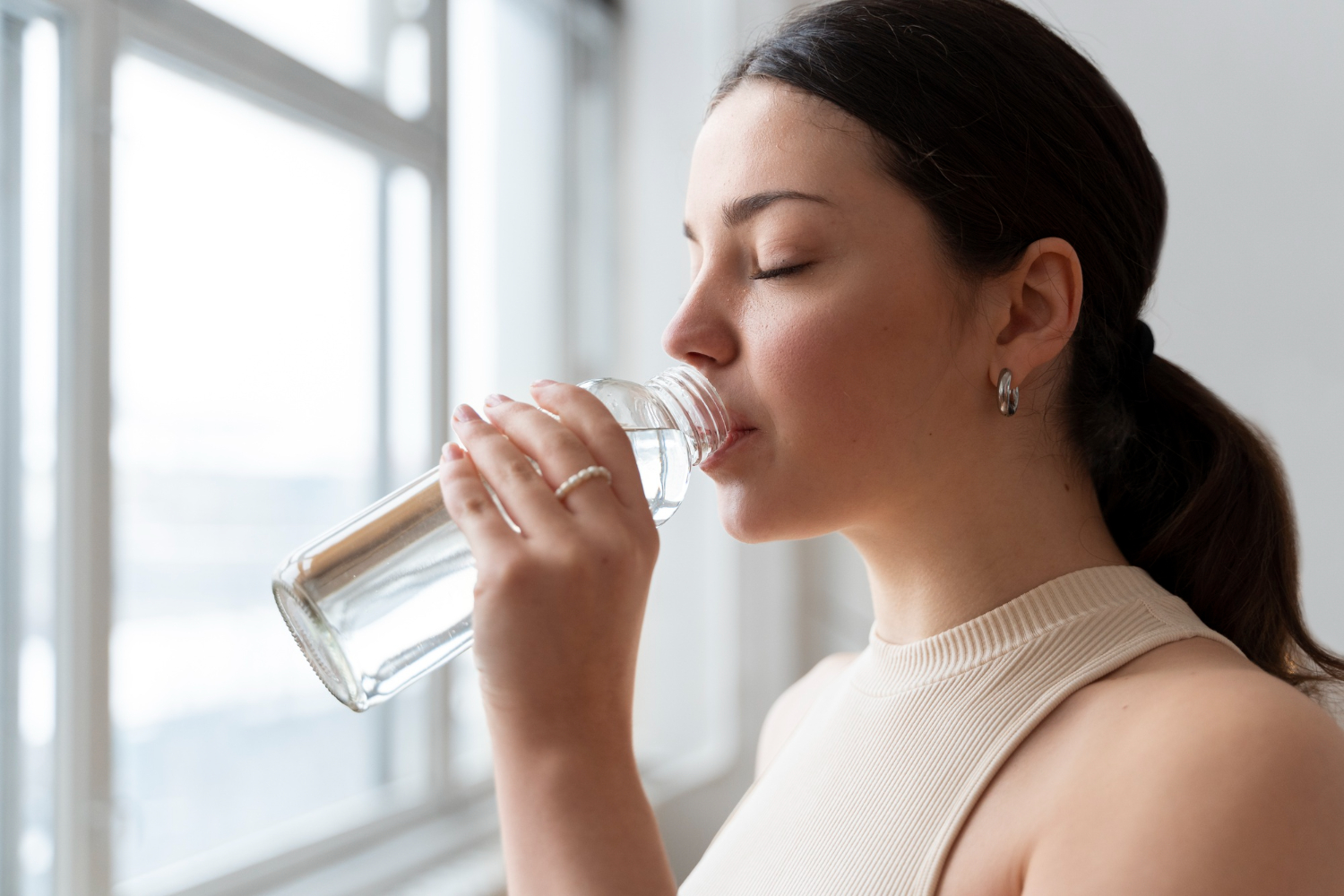Join our newsletter
Subscribe to our newsletter to receive updates and special offers
By subscribing you agree to our Terms & Conditions & Cookies Policy

Written By Giselle
We all know how important a good night’s sleep is, but what many of us don’t realise is that drinking water can play a major role in helping us get the restful sleep we need. Drinking water is essential for our health, and it can also have a big impact on our sleep. In this blog we’ll explore the benefits of drinking water for sleep, and we’ll look at how dehydration can negatively affect our sleep. So, let’s dive in and see how drinking water can help you get a better night’s sleep.
Sleep is one of the most important things we need to stay healthy and productive. When we don’t get enough sleep, we can feel tired, irritable, and our performance both at work and at home can suffer. While there are many things we can do to get better sleep, one of the most often overlooked aspects is drinking water. It’s true, drinking water can have a big impact on our sleep, and it can be beneficial for our overall health, so let’s take a look at how drinking water can help us sleep better.
One of the most important things you can do to get better sleep is to stay hydrated throughout the day. When you drink water throughout the day, it helps to keep your body functioning properly and it helps to regulate your body temperature. Additionally, drinking water helps to flush out toxins and can give you an energy boost. All of these things can help you to get better sleep at night.
Staying hydrated can also help to regulate your body’s natural sleep-wake cycle. When you are dehydrated, your body is more likely to wake you up in the middle of the night as it tries to get more water. Drinking plenty of water throughout the day can help to prevent this from happening.
Another way that drinking water can help you to get better sleep is by helping to reduce stress and anxiety. When we are dehydrated, our body produces more of the stress hormone cortisol, which can interfere with our ability to get good quality sleep. Drinking enough water can help to reduce stress and anxiety and can help you to relax and get better sleep.
Finally, drinking water can help to keep your body temperature at a comfortable level. This can help you to fall asleep faster and stay asleep longer.
Not drinking enough water can have a number of side effects, including fatigue, headaches, dry mouth, and constipation. All of these can interfere with your ability to get good quality sleep. Additionally, dehydration can increase your risk of developing certain health issues, such as high blood pressure and kidney stones.
Dehydration can also lead to more serious health issues, such as heat stroke, which can be life-threatening. Heat stroke can cause a wide range of symptoms, including confusion, dizziness, nausea, and even death. Dehydration can also cause your body to become overheated, which can lead to insomnia and other sleep disturbances.
There are a few signs that you may not be drinking enough water. The most common sign is feeling thirsty, but other signs include dry skin and lips, dark urine, headache, and fatigue. If you are experiencing any of these symptoms, it’s a good idea to drink more water.
One of the biggest challenges for people who are trying to get better sleep is drinking enough water without having to wake up to pee in the middle of the night. To avoid this, it’s important to drink enough water throughout the day, but not so much that you are over hydrated.
It’s also important to avoid drinking too much water before bed. This can lead to having to wake up to pee in the middle of the night, which can disrupt your sleep. Instead, it’s best to drink water throughout the day and to avoid drinking too much before bed.
If you do find yourself having to wake up to pee in the middle of the night, it’s important to make sure you are hydrated throughout the day. Drinking plenty of water can help to reduce the number of times you have to wake up to pee.
Dehydration can have a big impact on your sleep. When you are dehydrated, your body is not able to regulate its temperature as effectively, which can lead to difficulty falling asleep and staying asleep. Additionally, dehydration can lead to increased stress and anxiety, which can interfere with your ability to get good quality sleep.
Finally, dehydration can lead to an increase in the production of the stress hormone cortisol, which can cause you to wake up during the night. This can further disrupt your sleep, leading to poor quality sleep.
Drinking water is essential for our health and can also help us to get better sleep. Staying hydrated all day can help to regulate our body’s temperature and reduce stress and anxiety, which can help us to fall asleep faster and stay asleep longer. Additionally, drinking enough water can help to reduce the number of times we have to wake up to pee in the middle of the night.
On the other hand, not drinking enough water can lead to dehydration, which can cause a wide range of health issues and can interfere with our ability to get good quality sleep. If you are experiencing any signs of dehydration, it’s important to drink more water throughout the day.
So, if you want to get better sleep, make sure you are drinking enough water throughout the day. Your body will thank you for it, and you’ll be able to get the quality sleep you need to be healthy and productive.